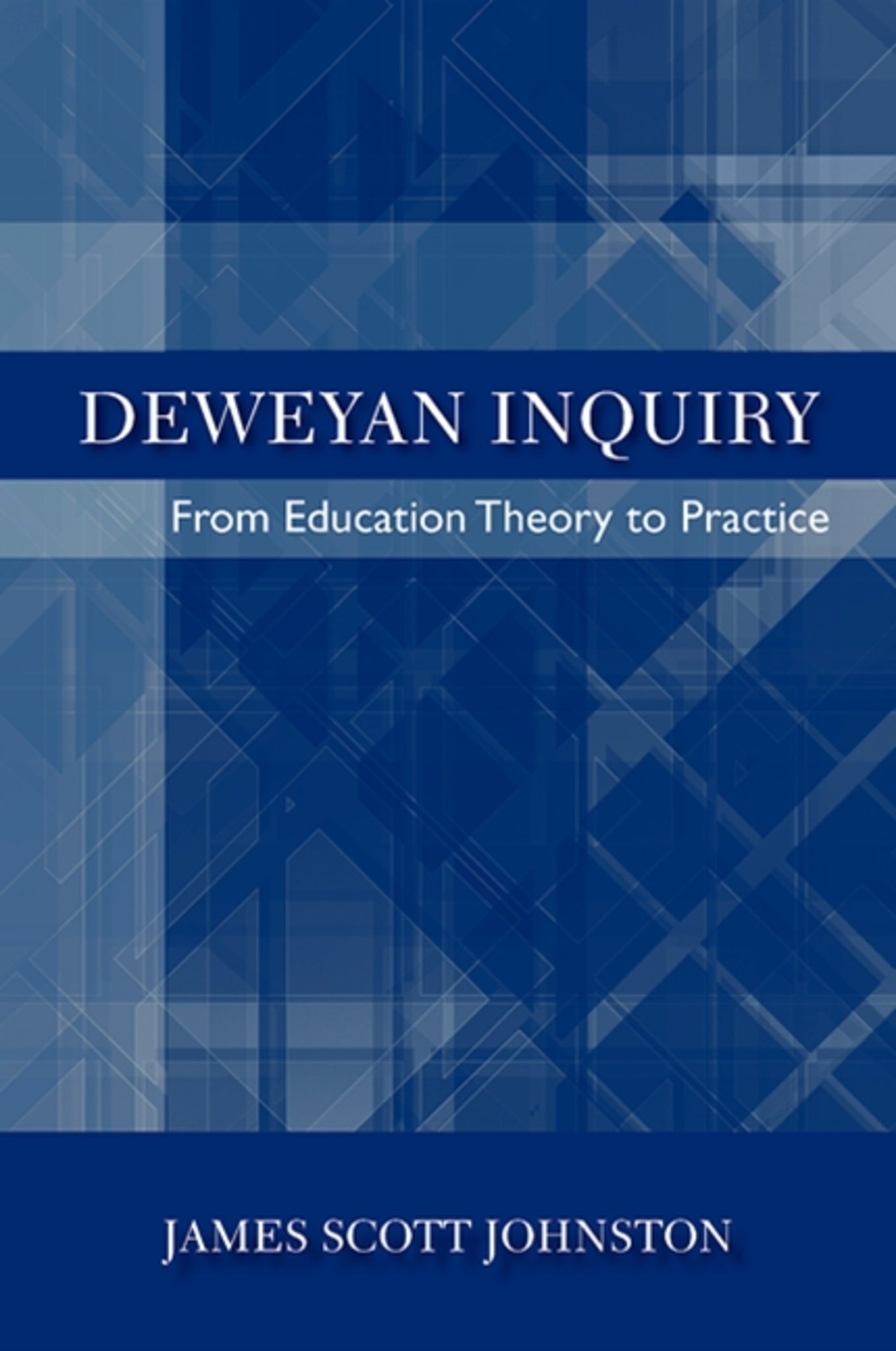We're sorry. An error has occurred
Please cancel or retry.
Deweyan Inquiry

Some error occured while loading the Quick View. Please close the Quick View and try reloading the page.
Couldn't load pickup availability
- Format:
-
01 January 2010

Presents John Dewey's theory of inquiry and applies it to various areas of the primary, middle, and secondary school curricula.
Deweyan Inquiry brings John Dewey's theory of inquiry together with educational theory and practice. James Scott Johnston uses Dewey's late masterpiece Logic: The Theory of Inquiry as a guide and looks at inquiry in science and science education, social science and social science education, art and art education, and embodiment and physical education. He argues that inquiry is self-correcting, and that this makes Deweyan inquiry particularly useful for the always-changing educational milieu.


"…Johnston sets an ambitious and important goal—applying Deweyan inquiry to the problem of teaching children in K–12. He relies primarily on Dewey's (1938) Logic: The Theory of Inquiry, a work seldom applied to educational settings. For this alone Johnston should be applauded." — Education and Culture
"Johnston ably navigates the dense theory of Dewey and constructs thought-provoking examples useful to the practitioner." — CHOICE
Preface
Acknowledgments
Introduction
The Case for Inquiry
The Case for Deweyan Inquiry
Chapter Summaries
1. An Account of General Inquiry
Of What Does Inquiry Consist
The Contexts of Inquiry
How the Logic of Inquiry Operates
Conflicts and Doubts Regarding Inquiry
Conclusion
2. Inquiry in Science Education
What Does Inquiry in Science Education Consist of?
What Contexts does Inquiry in Science Education Operate in?
How Does Inquiry in Science Education Operate?
Conflicts and Doubts in Science Education
Conclusion
3. Inquiry in Social Science Education
What Does Inquiry in Social Science Education Consist of?
What Contexts does Inquiry in Science Education Operate in?
How Does Inquiry in Social Science Education Operate?
Conflicts and Doubts in Social Science Education
Conclusion
4. Inquiry in Art and Art Education
What Does Inquiry in Art Consist of?
What Contexts Does Inquiry in Art Education Operate in?
How Does Inquiry in Art Education Operate?
Conflicts and Doubts in Art Education
Conclusion
5. Inquiry, Embodiment, and Kinesthetics in Education
What Does Inquiry in Bodily-kinesthetic Education Consist of?
What Contexts does Inquiry in Bodily-Kinesthetic Education Operate in?
How Does Inquiry in Bodily-kinesthetic Education Operate?
Conflicts and Doubts in Bodily-kinesthetic Education
Conclusion
Conclusion
Notes
References
Suggested Readings
Index



